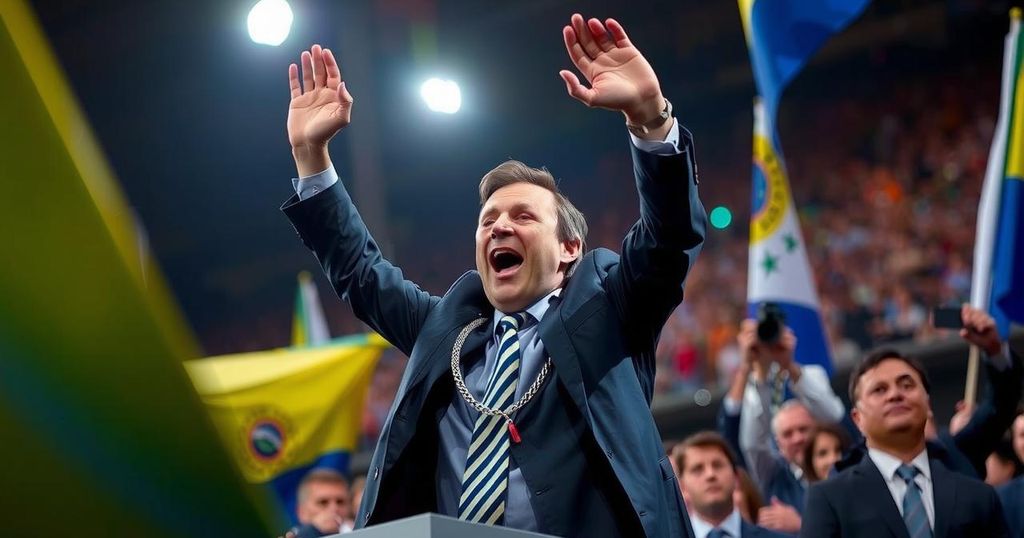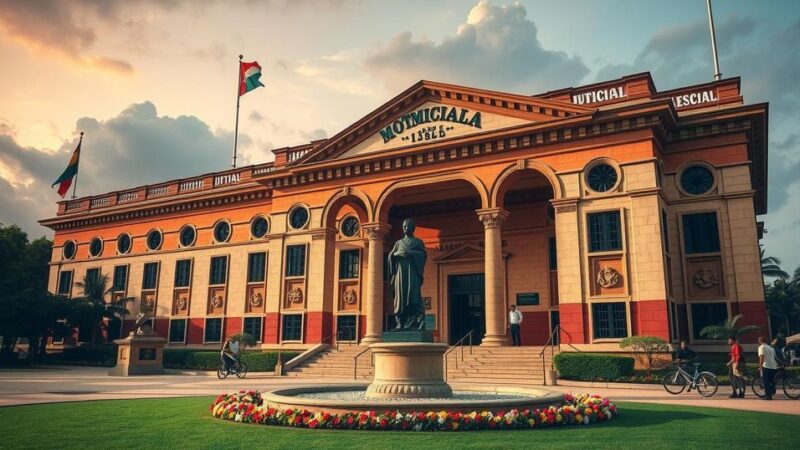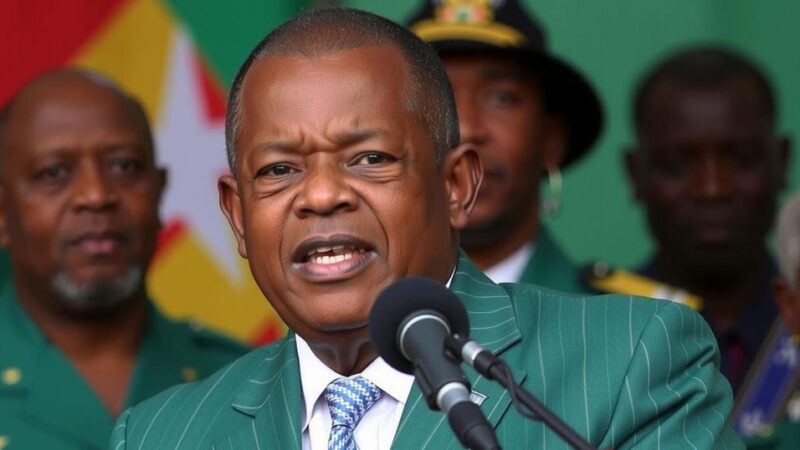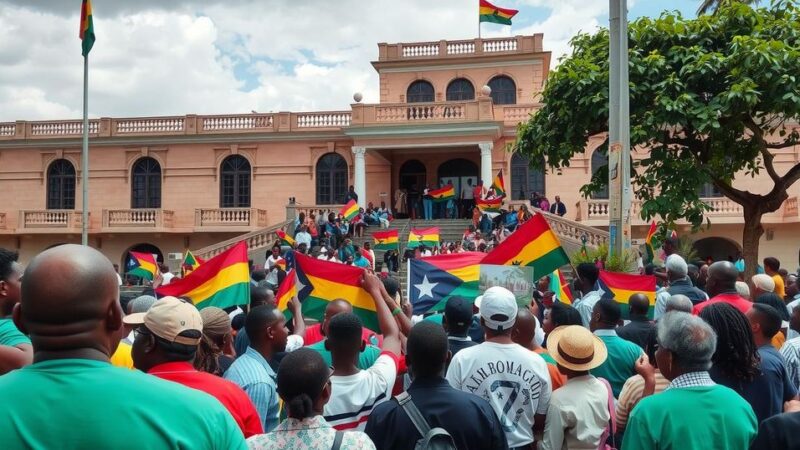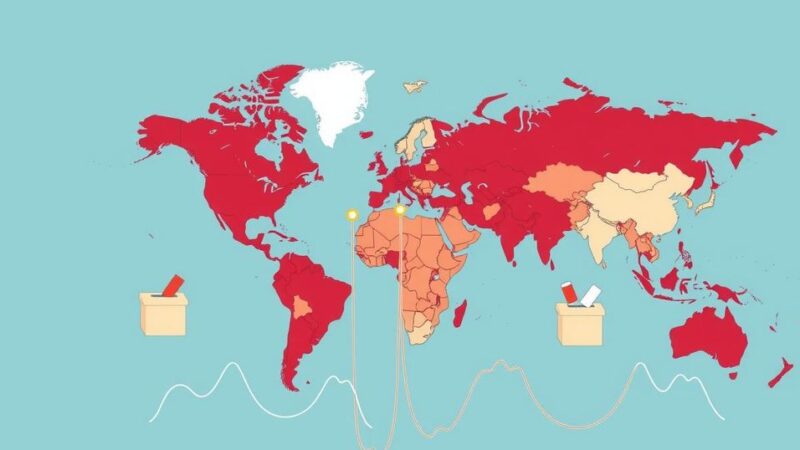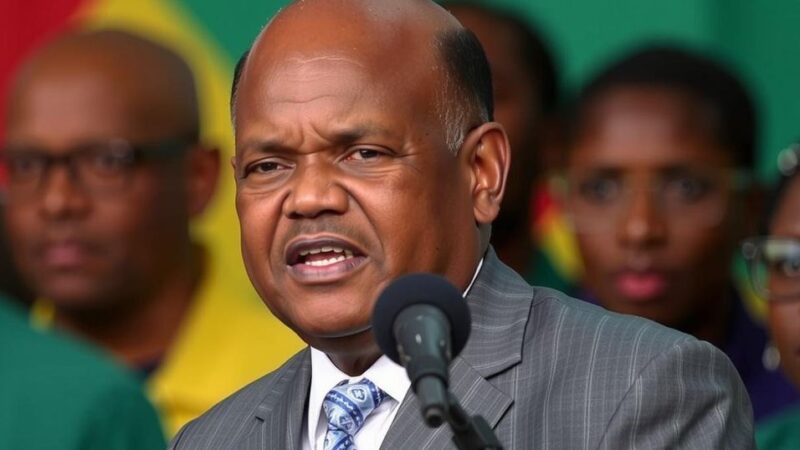Yamandú Orsi won the Uruguayan presidential election against Álvaro Delgado, marking a political shift in the country. The election had a high turnout of 90%, with Orsi receiving over 49% of the votes. His campaign focused on unity and moderate reforms amidst global anti-incumbent sentiments. Outgoing President Lacalle Pou confirmed a peaceful transition, and Orsi is set to begin his term on March 1, 2025, reflecting public dissatisfaction with the economic state post-pandemic.
In a closely fought runoff election on Sunday, left-wing candidate Yamandú Orsi triumphed over the conservative governing coalition, signifying a notable leadership change in Uruguay. This victory comes amid a global trend of anti-incumbent sentiment experienced in various nations this year. Álvaro Delgado, the candidate from the centre-right ruling coalition, conceded the election, expressing his congratulations with a tone of resignation, acknowledging Orsi’s win with a speech to supporters in Montevideo.
Orsi, a 57-year-old former history teacher and two-term mayor associated with the Broad Front coalition, celebrated his win to a crowd of enthusiastic supporters, emphasizing the need for a unified Uruguay. With only slightly over 49% of the votes counted in his favor compared to Delgado’s 46%, turnout was notably high at approximately 90%, a reflection of Uruguay’s compulsory voting policy. While challenges such as youth voter disinterest persist, Orsi’s moderate campaign approach distinguished him from the intense populist movements observed in other regions, such as Argentina and the United States.
Outgoing President Luis Lacalle Pou of the conservative coalition publicly acknowledged Orsi’s election on social media and assured a smooth transition of power. Orsi’s ascent to presidency mirrors a growing public dissatisfaction tied to post-pandemic economic realities, anti-incumbent voting trends globally, and the need for reform. While his platform does not advocate radical changes, it recalls the successes of the Broad Front’s previous governance period marked by economic growth and progressive social reforms, including the legalization of abortion and same-sex marriage.
Endorsements from political figures, including support from former President José Mujica, underscore a broader consensus on the necessity for stability and institutional respect. The President-elect has plans for targeted reforms to boost investment and revitalize agriculture, while also addressing social security adjustments. Moreover, Orsi’s administration is anticipated to reassess trade negotiations with China, which has previously caused tension within the Mercosur trade bloc.
Despite Delgado’s focus on continuing the economic policies of his predecessor, public frustration concerning slow wage increases and rising crime rates ultimately undermined his coalition’s appeal. In a conciliatory victory address, Orsi pledged to be a president committed to dialogue and community integration, with his formal administration commencing on March 1, 2025.
Yamandú Orsi’s election victory represents a significant shift in Uruguay’s political landscape, following a general defeat for incumbent parties globally. Voter turnout reflects civic engagement, yet challenges like youth apathy pose ongoing concerns. The election unfolded against a backdrop of emerging dissatisfaction with the ruling coalition’s economic management, particularly against the recovery struggles faced in the aftermath of the pandemic. The Broad Front’s previous tenure had been characterized by successful social reforms, establishing a legacy that Orsi seeks to build upon without resorting to radical changes. The context of this election is further elucidated by ongoing socio-economic dialogues that shape voter sentiment and political affiliation within Uruguay.
The election of Yamandú Orsi signifies a critical moment in Uruguay’s ongoing political evolution, as he becomes the new President. His victory, characterized by a commitment to moderate reform and social unity, presents an opportunity to address public dissatisfaction with the existing economic conditions. The high voter turnout underscores the electorate’s engagement, while the transition plans indicate a promising start toward collaboration and dialogue in addressing national challenges. As Uruguay approaches Orsi’s inauguration in March 2025, his administration’s success will depend on the implementation of his ambitions for reform and economic stability.
Original Source: indianexpress.com

